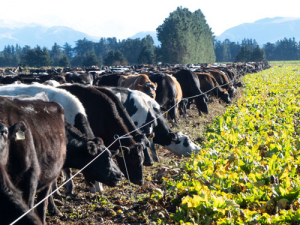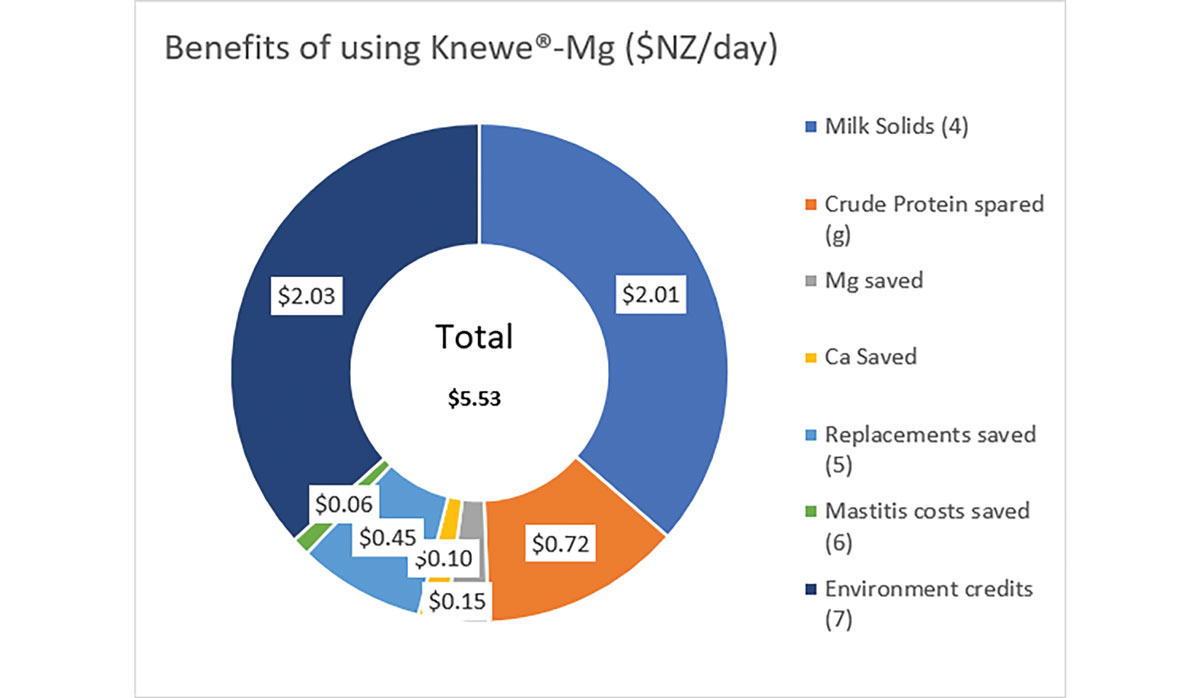The politics of climate change
OPINION: The Financial Times, a major international newspaper, featured New Zealand on its front page at the beginning of June. It wasn't for the right reasons.
 Knewe-Mg provides the first real step in practical on-farm greenhouse gas mitigation, says Graeme Coles.
Knewe-Mg provides the first real step in practical on-farm greenhouse gas mitigation, says Graeme Coles.
Graeme Coles claims he has developed a product that provides the first real step in practical on-farm greenhouse gas mitigation.
"It has been frustrating to hear the dialogue about climate change dominated by pessimism about how long it is going to take to develop new tools to mitigate agricultural emissions," he told Rural News.
"Especially when New Zealand owns the technology to nearly halve total ruminant greenhouse gas emissions immediately."
Coles' company Knewe Biosystems Limited has developed a new feed supplement product from sustainable biofuel production, which he claims provides environmental benefit, enhances animal welfare and boosts animal productivity.
He says the product Knewe-Mg has a prebiotic effect in the rumen of cows, sheep, deer and other grazing animals. He says it helps lesen animal greenhouse gas emissions by cutting nitrogen loss to the environment by 30% and reducing methane output by cutting animal waste per kilogram of milk solids produced.
"The technology does this by improving the performance of the micro-organisms in the rumen, improving the ability of the animal to absorb rumen fermentation products, and as a side benefit, improve the status of the rumen immune system," Coles explains.
He says that science shows that the New Zealand-invented prebiotic increases animal productivity relative to feed intake, enhances animal wellbeing and enables farmers to mitigate both methane and nitrogen emissions.
"It is cheap, safe and easy to use, and the approach is patented, so the benefits can all be brought back to New Zealand," Coles says.
First trials on the product were conducted back in 2008.
 |
|---|
|
Knewe Biosystems Limited has developed a new feed supplement which it claims provides environmental benefit, enhances animal welfare and boosts animal productivity. |
"In 25 evaluations since, an effect consistent with approximately 10% improvement in feed utilisation has always been found," he claims. "What the animal has done with this extra nutrition has varied, but observations include up to 23% increase in milksolids yield, up to 30% increase in weight gain in beef finishers, and 60% increase in weight gain in venison weaners," Coles says.
"Velvet stags show around 15% increase in yield as well as a reduction in aggression."
Coles adds that research has also shown dramatic decreases in empty cows, incidences of mastitis and of calving problems.
"Theese benefits will show up in at least one extra lactation, which is significant contribution to herd GHG reduction," he adds. "Overall, this leads to a 25% reduction in methane intensity of production."
However, Coles believes the most important benefit from farmers using Knewe-Mg is that it can reduce the loss of nitrogen from their herds to the environment by at least 35%.
"Feeding the prebiotic during milking allows the farmer to reduce feed protein level from 14% to no more than 11% - a 15% saving that almost pays for the product by itself," he claims. "Those reduced losses all show up in reduced emissions of nitrous oxide to an extent that has a better impact than eliminating all methane emissions."
Coles says the product's prebiotic technology data has been evaluated by Fonterra and it will be commercially available for the 2022-23 dairy season.
"Farmers can adopt this technology now, exceed the demands of the climate challenge, and make good money doing so."
Changed logos on shirts otherwise it will be business as usual when Fonterra’s consumer and related businesses are expected to change hands next month.
Reflecting on the past year, Horticulture New Zealand chief executive Kate Scott says there has been a lot to celebrate.
Ministry for Primary Industries (MPI) Director General Ray Smith is giving a big shout-out to the horticulture sector, especially kiwifruit.
Early forecasts for New Zealand's apples and pears point to a standout season marked by exceptional fruit quality and high pack-out rates.
Tickets are now available for Beef + Lamb New Zealand’s (B+LNZ) Out the Gate, returning from 19-21 May 2026 at Te Pae, Christchurch.
Dairy Women's Network (DWN) is welcoming AgriHealth as a new partner.

OPINION: Here w go: the election date is set for November 7 and the politicians are out of the gate…
OPINION: ECan data was released a few days ago showing Canterbury farmers have made “giant strides on environmental performance”.